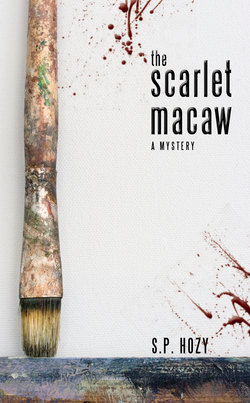Читать книгу The Scarlet Macaw - S.P. Hozy - Страница 15
На сайте Литреса книга снята с продажи.
Chapter Seven
ОглавлениеMaris had no trouble finding information about Edward Sutcliffe Moresby at the public library. Moresby was a British novelist and short story writer who was born in 1887 and died in 1965. He led a fairly peripatetic life due to a small independent income left to him by his grandfather. His travels took him to the Orient, including Thailand, Malaya and Singapore, India, and Ceylon. He eventually settled in Monte Carlo, in a seventeenth-century villa, but never gave up travelling. He wrote twenty-five novels and a hundred short stories that were based on his travels and the people he met. He usually cast himself in the role of narrator and most of his stories were variations on real events in his own life.
His father, a well-known barrister, died when Moresby was nine. He was raised by his mother Maud, with whom he had a close relationship until her death at ninety-one. He never married and, although he had friendships with both men and women, he seems not to have had any lasting attachments except the one with his mother. There was much speculation regarding his sexuality, but no cache of hidden love letters or confessional autobiographies ever settled the matter one way or the other.
Maris recalled reading one of Moresby’s novels in high school. It was his most famous and, it was believed, the most autobiographical of his books. The Heart’s Prisoner was the story of a young man who becomes an Anglican minister like his father because his family pressures him into it. The church was to have been the calling of his elder brother, but that brother died from a weak heart when he was just fourteen. The character becomes involved with a woman of ill repute when he tries to save her from a life of prostitution. She nearly destroys him, but he escapes by deciding to leave the church and leave England. Moresby had studied law at university in an effort to follow in his illustrious father’s footsteps and please his mother, but he discovered he hated the profession and didn’t have the temperament for law. He wanted to be a writer.
Maris couldn’t remember Peter’s ever mentioning Moresby or his books, and was no closer to knowing why he’d left her the first editions. Except perhaps because they were first editions and therefore valuable. But still, why did he collect only Moresby’s books? Surely there were plenty of more valuable first editions he could have acquired.
Maris could find no connection between Edward Sutcliffe Moresby and someone with the initials AS, which was odd because they were the two sole occupants of the trunk Peter had left her. Why? There must be a connection, she thought. But Peter hadn’t left any clues. Maybe he would have told her about the bequest if he had lived long enough. He would have thought there was plenty of time for that — and why not? What forty-five-year-old man expects to die suddenly after drinking a glass of his favourite aperitif?
Maris looked around the library. There was hardly anyone there on a Tuesday afternoon and she was overcome by a feeling of loneliness as powerful and frightening as suffocation. She was afraid that if she closed her eyes, someone would push a pillow onto her face and smother her. It was as if something was slowly sucking the air from the room, the way her mother had taught her to use a straw to pull the air out of a plastic freezer bag before sealing the contents. “It needs to be airtight,” her mother said, “because nothing lives in a vacuum, including bacteria.”
Living in a vacuum. That’s what her life felt like right now: an airless, colourless, germ-free void where nothing was happening. Why couldn’t she shake this funk that had been gripping her since Peter’s death? Shouldn’t she have recovered by now? Had Peter’s death been such a blow that it could send her to this place of virtual stasis? She thought she was made of sterner stuff than that, thought she was more resilient. Yet when faced with tragedy — it was the first time she had experienced the death of someone she cared about — she had folded in on herself. Granted, it was murder, and a seemingly irrational, unexplainable, and senseless death, so she gave herself that. Her grief had another layer of difficulty piled on top of it, one that robbed her of solace every time she thought of it. Who had the emotional toolkit to deal with the trauma of murder?
Should she talk to a shrink? Ray thought so, and even Dinah had mentioned it before Maris left Singapore. But every part of Maris resisted taking that path. She didn’t want to say it was because she was an artist — that seemed so pretentious, like a hoity-toity cop-out. She was who she was and who she was raised to be: a stubborn, independent person who expressed herself creatively through painting. That was central to her existence. Otherwise, what was the point? Without art, what was the point of getting up every morning? Of breathing? It all just seemed like waiting for death. Getting through the day was simply moving closer to death. When had getting through the day become a reason for living?
